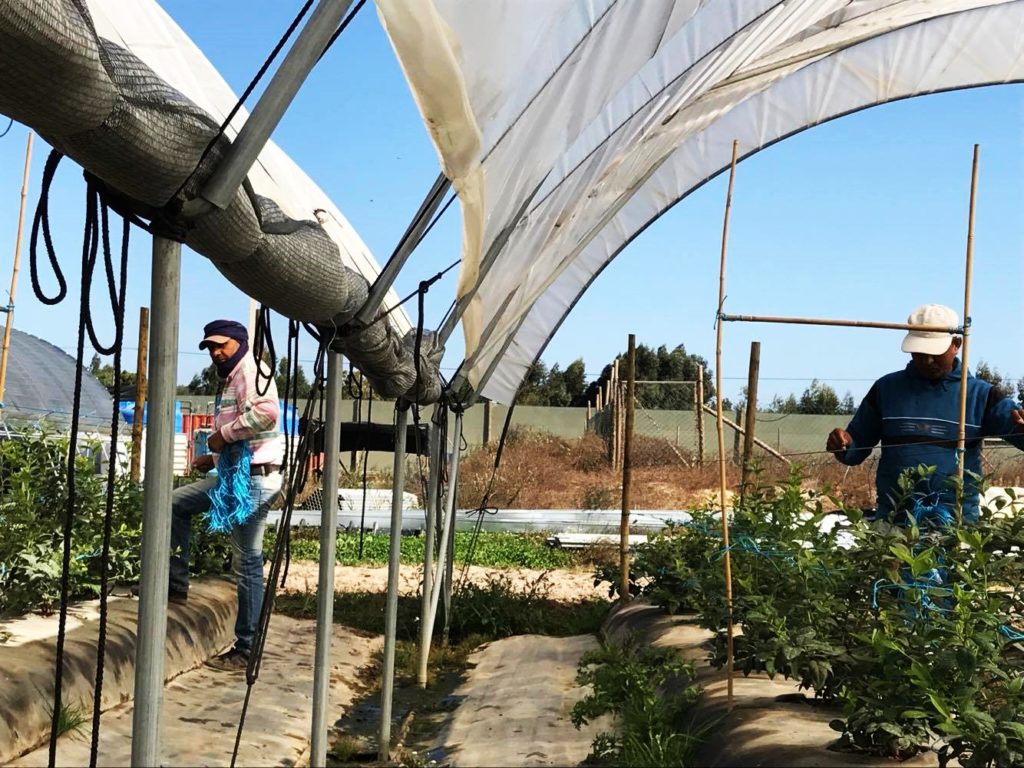These days, the matter has surfaced in the media, as a result of the words of the Prime Minister regarding the pandemic in Odemira.
But the subject is not new. It is about ten years old.
No Sul Informação, already several pieces gave very sharp facets of this human problem, quite shocking.
In this context, it may be useful to help reflect on the following questions:
1- Why are almost only Asians working in agriculture, with so many hundreds of thousands of Portuguese unemployed?
2- Why do they live in unhealthy and illegal premises and without a written lease?
3- Why do they receive so little for themselves, despite working so hard?
4- Why do the Municipal Councils, the Tax Authority, the GNR, the PJ and the SEF ignore the illegality of their living conditions, in plain sight?
In fact, since agriculture intensified in the Algarve (red fruits and citrus harvesting), in the areas of Tavira and Faro, or in Alentejo, in Odemira or around investments with the irrigation of Alqueva, thousands of young people arrived from India, Nepal, Bangladesh or Pakistan.
Of the Portuguese who are unemployed, many do not want to do anything and even less in agriculture. And the Government, with the tolerant facilities through Social Security and the IEFP, forces us to pay increasing taxes to support those who objectively do not want to do anything.
Within days, as soon as the sun shines, we will have Portuguese people with unemployment benefits on the sand on the beaches and Asians working so that food is not lacking in the distribution chains.
They live in poor facilities, where they pay 100 euros for a mattress, because they have to give part of what they earn to the "boss", often a smart fellow countryman or a temporary work company that exploits them, and then the rice that feeds them , the rest of the money is remitted to family members who were left in Asia in difficulties.
There is no lease agreement, because containers, warehouses, shacks and illegal attachments do not have a license for municipal use.
The authorities know, like all of us, of the illegalities involved, but they do nothing.
The Government, two years ago, still created legislation to brown the subject of housing conditions, with the prosapies of the most presumptuous and devoid of humility minister (Matos Fernandes).
António Costa's words, either I'm mistaken or they won't follow. No guidelines will be given for state services to act. Therefore, I believe that this time, the problem will not be resolved.
The Municipal Councils are all aware of the illegality of housing, but they consent to everything and do nothing. They fold and don't assume the fight against the “landlords” without honesty, who get fed up with the business. Why not inspect? In an election year even less, unfortunately.
AT (Finance) knows that there are no written or declared leases, and it does nothing.
ACT apologizes that the shacks are not places of work and the ASAE does not ask for lease contracts, nor for work contracts.
The GNR and the PJ know all this and what are they waiting for? They only act rarely and under pressure from public opinion or in the face of an obvious scandal.
Once the pandemic is over, everything in São Teotónio will be as it was before.
But it shouldn't be like that.
It is only asked that, whoever has the skills, act. There are enough laws and plenty of authority. Just ask them to do something!
If the aforementioned bodies act in concert, things change.
Author José Macário Correia, farmer




















Comments